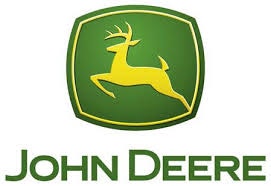The poor performance of Deere & Company (NYSE:DE)’s stock in recent months may have steered investors away. Nonetheless, big investors such as Berkshire Hathaway still believe in this company, as Buffett and company still hold more than $322 million worth of Deere & Company (NYSE:DE) shares. Is this company still a viable investment? Is Deere & Company (NYSE:DE)’s stock underpriced?

Revenues continue to rise
Even though many heavy equipment companies are struggling to reach growth in revenues, Deere & Company (NYSE:DE)managed to augment its revenues by 9% in the quarter ending on April 2013 (year over year). In comparison, net revenues of Caterpillar Inc. (NYSE:CAT) sharply fell by more than 17%; Joy Global Inc. (NYSE:JOY)’s revenues declined by 11.7%. For Deere & Company (NYSE:DE), most of its growth was due to the sharp rise in its agriculture and turf business segment: This segment’s revenues rose by 12% during the recent quarter. Conversely, the company’s revenues in construction and forestry fell by 6%.
The company estimates its agriculture and turf business segment sales will grow by 7% in the fiscal year of 2013, mainly due to the rise in sales in South America, including Brazil. On the other hand, its construction and forestry sales are projected to fall by nearly 5% during the year. Since sales from construction and forestry account for only 15% of the company’s total revenues and less than 5% of its operating profit, this fall in sales won’t have a strong adverse effect on Deere & Company (NYSE:DE)’s total sales growth.
Looking forward, Deere’s sales are likely to further rise as the company continues to increase its exposure to high-growth countries such as Brazil. Moreover, if the company will keep expanding its agriculture and turf business segment, this could also lead to a rise in its profit margin in the coming years. On the other hand, the recent political-social instability in Brazil reminds us of the uncertainty this country could pose. Further, if the US dollar will continue to strengthen, it could curb the growth in international sales. Revenues of Caterpillar Inc. (NYSE:CAT) and Joy Global Inc. (NYSE:JOY) are also likely to be adversely affected by the appreciation of the US dollar in the near future.
Stable profitability
Despite the recent rise in Deere’s revenues in the recent quarter, the company’s profit margins remained stable: Deere’s profit margin reached almost 16% in the last quarter, which is roughly the same margin recorded in the same quarter a year back.
The chart below compares the developments of leading heavy-equipment profit margins in recent quarters.

As seen, Deere is in the middle of the pack in this category. Joy’s profit margin is much higher at nearly 20.5%. Caterpillar’s profit margin was the lowest at 9.2% in the first quarter of 2013.
Let’s turn to valuation.
Valuation
Let’s examine the above-mentioned companies’ value to get a better understanding of their market value compare to the industry average. To that end, let’s analyze these companies’ enterprise value (EV) and their EV to EBIT ratio.
The table below presents the summary of data of all three companies and the average machinery industry.

This type of calculation considers these companies’ different financial structures, including their debt and cash. The yearly EBIT is based on the last four quarters. Based on the above, Deere and (NYSE:DE) Caterpillar’s EV to EBIT ratio is very close to the industry average. On the other hand, Joy Global has a much lower EV to EBIT ratio, which is even lower than the industry average. This measurement shows a different picture than the regular P/E. The P/Es of Deere and Caterpillar aren’t much higher than Joy Global’s P/E and they were all much lower than the machinery market average. This means Deere and Caterpillar aren’t expensive or cheap, while Joy Global seems inexpensive for its industry.
The Foolish bottom line
The ongoing growth in Deere’s revenues, especially compared to other leading companies such as Caterpillar, is likely to keep Deere as a solid investment. Moreover, Deere’s current stock price isn’t high for the industry. Other heavy machinery companies such as Joy might offer a better opportunity in terms of valuation, but every opportunity also entails risk that might not fit every investor.
The article Is Deere Worth Having in Your Portfolio? originally appeared on Fool.com and is written by Lior Cohen.
Lior Cohen has no position in any stocks mentioned. The Motley Fool has no position in any of the stocks mentioned. Lior is a member of The Motley Fool Blog Network — entries represent the personal opinion of the blogger and are not formally edited.
Copyright © 1995 – 2013 The Motley Fool, LLC. All rights reserved. The Motley Fool has a disclosure policy.




